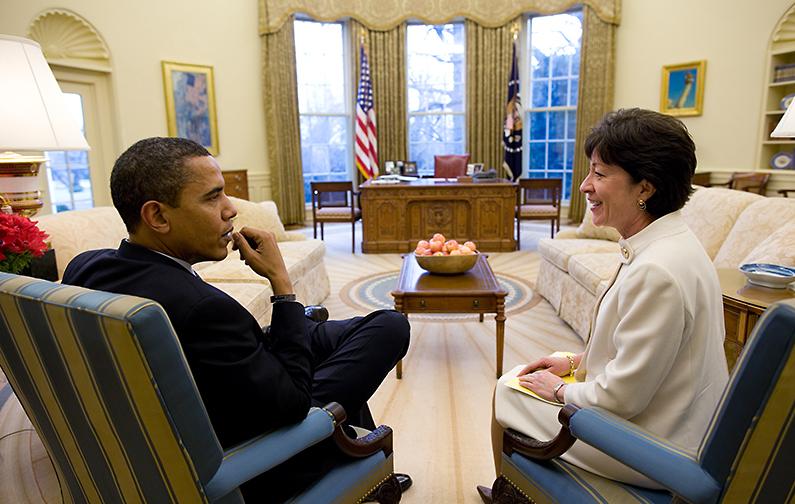
Speaking on “Face the Nation,” Senator Susan Collins, Republican of Maine, said that it was a “mistake” for the Republican National Committee to return its support for Roy Moore, candidate for Senator from Alabama, who is accused of sexual misconduct with women and girls, some as young as 14. Collins said that the Senate “will have a very tough decision to make” if Moore should win the election this Tuesday.
“I’m disappointed that the RNC has resumed its support of Roy Moore. I think that’s a mistake. I would point out that I did not support Mr. Moore even prior to these allegations of sexual misconduct,” Collins emphasized. “Because I was concerned about his anti-Muslim comments, his anti-LGBT comments, and also, most important of all, he’d been removed twice from the Alabama Supreme Court for failure to follow lawful judicial orders.”
Moore has denied the allegations made against him. His wrongdoing dates back 30 years, when he was a young district attorney in Alabama. Despite his denials the GOP originally called for his withdrawal from the election. The RNC and the National Republican Senatorial Committee both divorced themselves from ties with Moore’s campaign soon after the accusations were lodged.
President Trump also called for Moore to step aside, saying in a statement that the former chief judge of the Alabama Supreme Court should refrain from running for the Senate if the allegations against him are true.
Trump backtracked, however. Last week Trump endorsed Moore on Twitter, and recorded a automatic call in support of him. In Pensacola, Florida, right across the border from Alabama, Trump urged Alabamans to vote for Moore
Support for Moore from Trump also came with backing from the RNC, including financially. The NRSC has remained distant from Moore. Colorado Senator Cory Gardner, chairman of the NRSC stated that if Moore does win the election he would support expelling Moore from the Senate.
Collins mostly agreed with Gardner, although she would hesitate to throw Moore out of the Senate if he were indeed elected.
“If the allegations are known prior to the election … then we have a very tough decision to make about whether it’s our role as senators to overturn the will of the people,” she said. “Now, I think it’s a different situation if the allegations are not known, or if they occur while the person is sitting in the Senate.”


